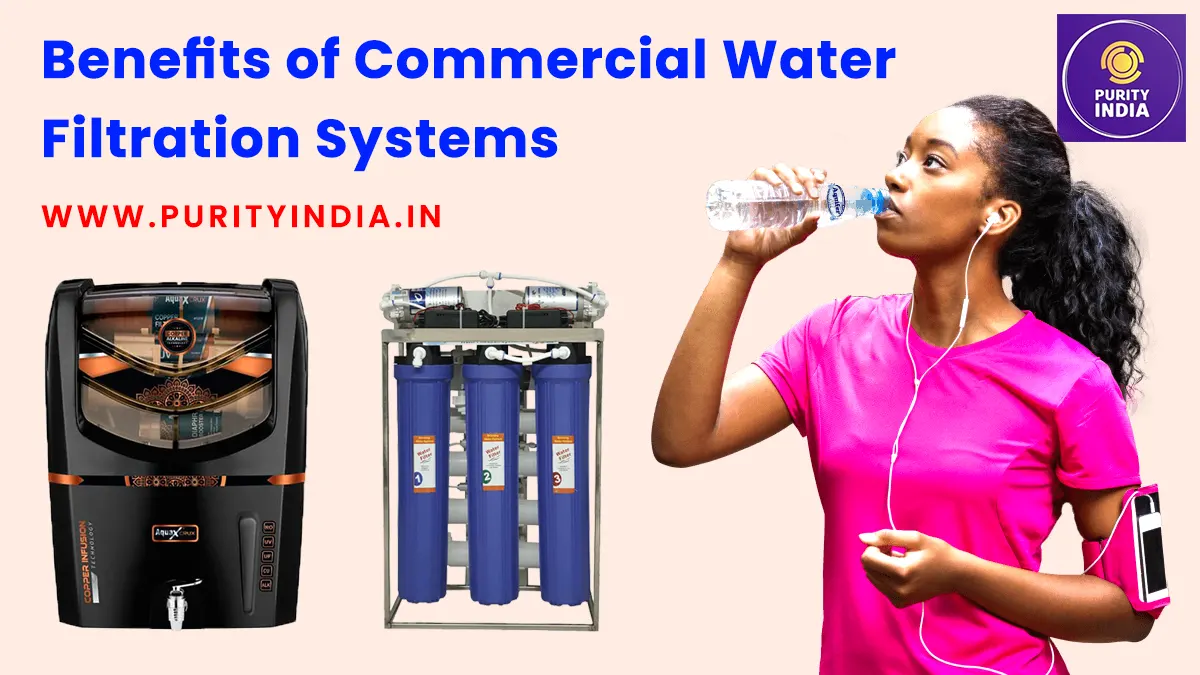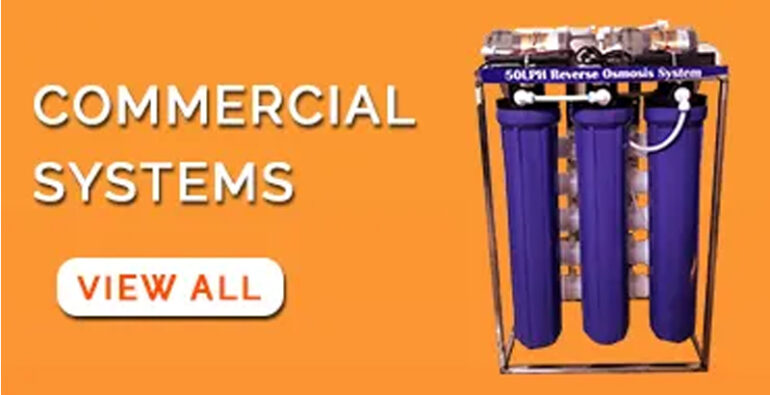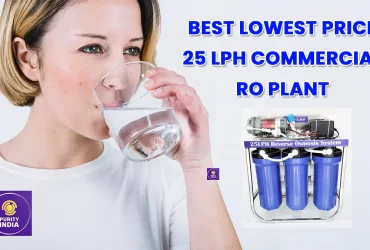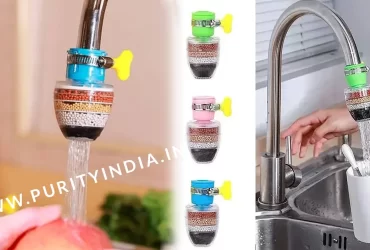- Your cart is empty
- Continue Shopping
Benefits of Commercial Water Filtration Systems

From the agricultural industry to the food and beverage sector, water is an essential part of growing businesses. However, if your municipal drinking water is hard, smelly or discoloured, it can ruin your best plan.
Whether you just need to provide employees in your office with quality drinking water or filter thousands of gallons for beverage production, there is a filtration system for you.
A commercial water filtration system or commercial reverse osmosis system offers countless benefits to improve water quality and, in turn, the quality of life for your employees. In this guide, we will go over the four main benefits that you can enjoy by installing a filtration system in your workplace.
The most important benefit of a commercial water filtration system is that it increases the safety of one of our most vital resources: water.
Although some industries use nonpotable, that is, nonpotable, water for cleaning purposes, in general you want to make sure that all water on your premises is potable.
It is always a good idea to test the chemical and mineral levels of the water when your employees or customers consume it.
Likewise, you should also test the drinking water you use to feed the animals or furry friends that participate in your business operations.
If you’re on municipal water, you may assume it’s already safe. However, it’s important to look into the details:
Although the water may be considered drinkable by the municipality, the treatment of the water varies and may be imperfect. For example, your city or town may treat
the water with chlorine, which helps kill bacteria, but leaves an unpleasant taste.
Other factors can affect water quality as it’s delivered to your business—for example, nearby industries. If you’re concerned about runoff from factories or plants, it’s worth having your water tested.
Building infrastructure can also affect water quality. For example, older buildings are more likely to have lead pipes. If you work out of a building constructed before the 1986 Safe Water Act, your water may be exposed to lead on its way to the tap.
If you’re on well water, you might face a different set of challenges as your local water table fluctuates.
No matter your water source, the bottom line is that water filtration makes drinking water safer.
Depending on the specific method of filtration, it can remove:
Chemicals such as chlorine
• Hard water minerals (Calcium and Magnesium)
• Salts
• The lead often found in old pipes
• Other heavy metals such as arsenic, copper, and iron
• Bacteria and protozoa
Municipalities seek to remove the most harmful of these contaminants. However, even those that don’t pose a health risk—for example, calcium and magnesium—can affect the overall quality of your water.
Reuse Water Waste and Maximize Efficiency
While you can improve the quality of the water that you consume, you can also improve the quality of the water that leaves your industry as wastewater.
Wastewater is water that has already been used for domestic, commercial, or industrial processes such as washing dishes or watering crops. Filtering this water can make it suitable for other purposes.
Commercial Water Filtration System Options

Depending on your business water filtration needs, there are two water filter options: Reverse Osmosis and Activated Carbon.
Each method is designed to capture certain chemicals or particles. However, many water filtration systems involve a combination of the RO water filter system and activated carbon to catch more contaminants.
Here’s a more in-depth look at how each system works:
Reverse Osmosis System :- In a home or commercial reverse osmosis system, water passes through a semipermeable membrane that filters out contaminants.
Reverse osmosis filtration systems are particularly effective at removing dissolved salts and the minerals.
Activated Carbon :– Carbon effectively filters contaminants like chlorine as well as organic chemicals. The filter “absorbs” these contaminants through the process of chemical attraction. Since not all chemicals will be attracted to carbon, carbon filters won’t catch everything.
Keep in mind that not all dissolved elements are a problem. Minerals and salt may also be desirable for some businesses. Consider the desired result for the water you use.
Do you need to grow acres of corn? Or do you need extra fresh water to make bagels?
To decide on the best commercial water treatment and filtration system for your needs, consult with an expert.


